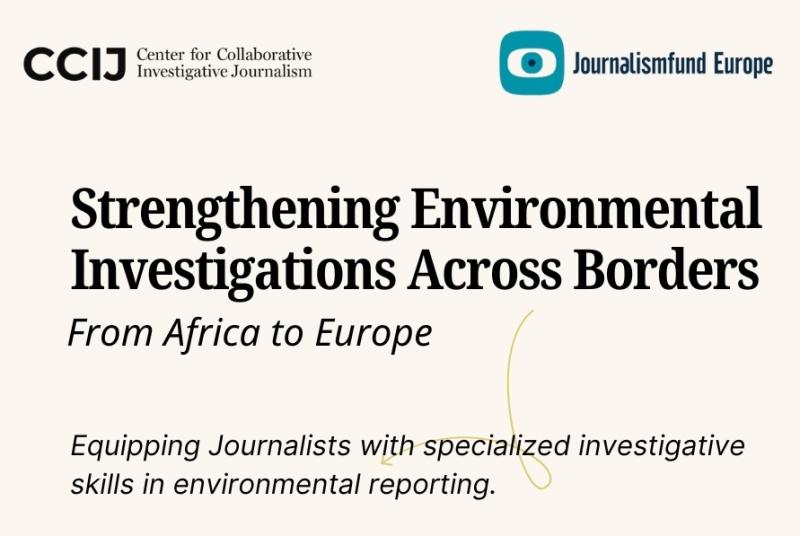This six-month programme, which is open to 50 participants (40 mid-career investigative journalists and 10 early-career journalists/students), consists of 12 online workshops, each lasting 90 minutes. These are supplemented by practical assignments, mentorship and resource toolkits.
The sessions cover data analysis, AI tools, open-source intelligence (OSINT) and visual storytelling, combining theory with practical exercises. The programme also includes mentorship and follow-up support to reinforce learning.
Training Objectives
- Provide 50 journalists from Europe and Africa with specialised investigative training in environmental reporting.
- Strengthen cross-border collaboration to uncover environmental misconduct linked to European industries in Africa.
- Provide practical, hands-on tools to investigate toxic exports, supply chains, financial forensics, OSINT, climate disinformation, and visual storytelling.
- Ensure participants produce practical outputs that can be applied in their reporting immediately.
Timeline
Phase 1: Preparation & Recruitment (January 2026)
Phase 2: Training Workshops (February - July 2026)
Workshop Schedule:
1. February – Investigating Toxic Exports & Industrial Pollution
2. March – Data Analysis & AI for Environmental Reporting
3. April – Supply Chains & Financial Tracking
4. May – OSINT for Environmental Investigations
5. June – Fact-checking & Countering Climate Disinformation
6. July – Visual & Data-driven Storytelling
Trainers:
- Andy Lehren - CCIJ Editorial Director
- Peter Aldhous - CCIJ Data Editor and Analyst
- Ajibola Amzat - CCIJ Africa Editor
- Nelly Kalu- CCIJ Editorial Projects & Products Manager
Training Coordinator - Fola Folayan (CCIJ)
Partner organisations:
Phase 3: Evaluation & Afterlife (August 2026)


